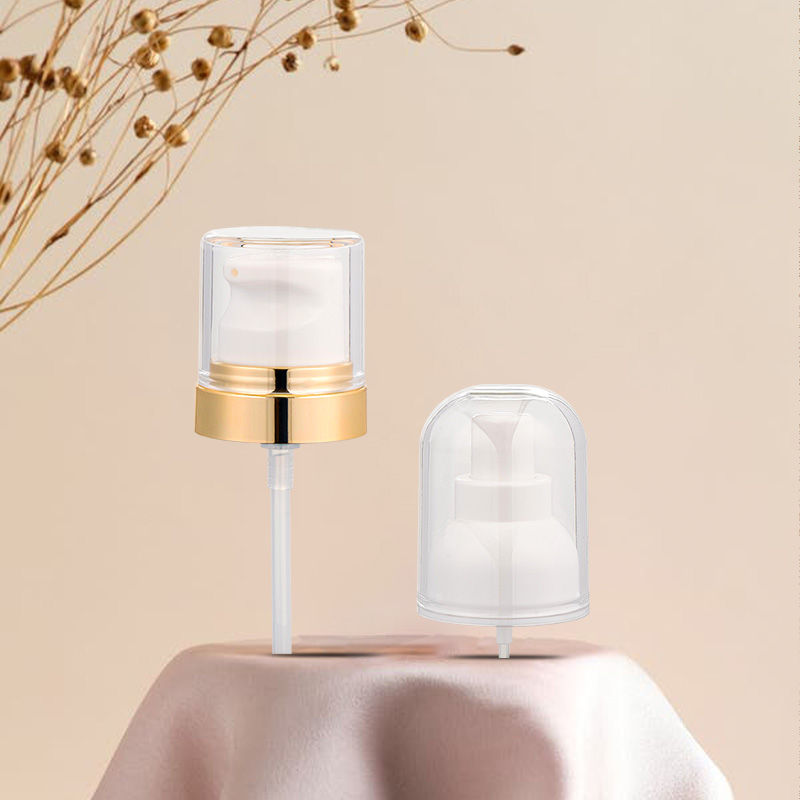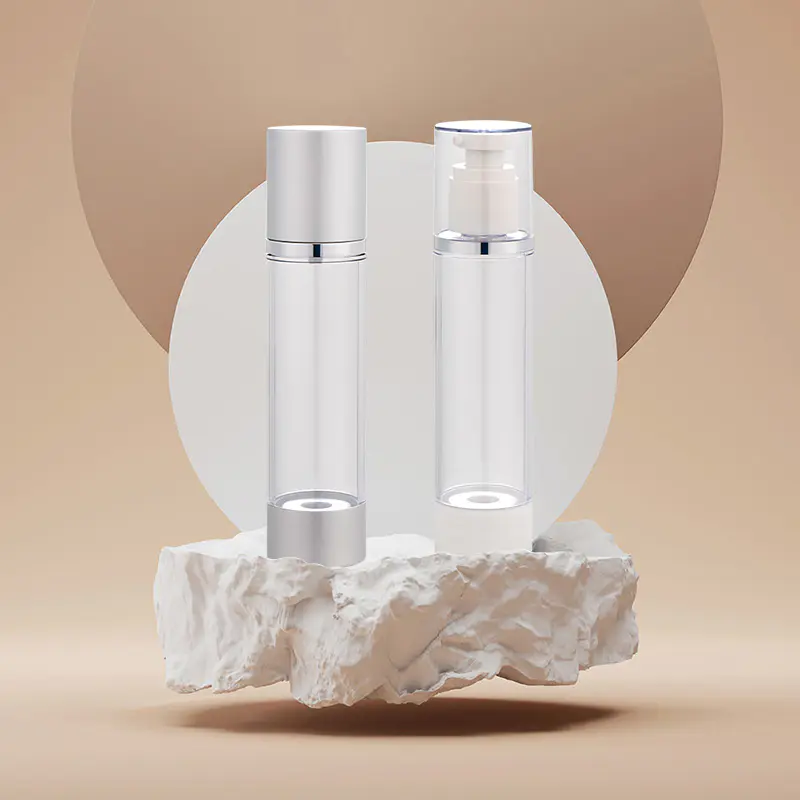Electrochemical Aluminum Mist Spray Pump

1. Corrosion resistance
Plastic Emulsion Pump:
Plastic Emulsion Pump is usually made of plastic materials such as polypropylene (PP), polystyrene (PS) or acrylonitrile-styrene copolymer (AS). These plastic materials have good corrosion resistance, especially the ability to resist the erosion of a variety of chemicals, such as acids and alkalis. Therefore, plastic emulsion pumps perform well when conveying corrosive liquids and are not prone to leakage or damage.
Traditional metal pumps:
Traditional metal pumps, such as cast iron pumps and stainless steel pumps, although they also have certain corrosion resistance, may be less resistant to certain specific chemicals in comparison. For example, some strong acids or strong alkalis may corrode the metal surface, causing the pump to deteriorate or fail.
2. Temperature resistance
Plastic Emulsion Pump:
The temperature resistance of Plastic Emulsion Pump is relatively poor, especially in high temperature environments. Ordinary plastic materials are prone to deformation or even melting at high temperatures, which affects the normal operation of the pump. However, with the advancement of technology, some special plastic materials, such as fluoroplastics, have been used to manufacture plastic pumps. These materials have higher temperature resistance and can remain stable in a high temperature environment within a certain range.
Traditional metal pumps:
Traditional metal pumps usually have higher temperature resistance. Metal materials can maintain stable physical and chemical properties in high temperature environments and are not easy to deform or melt. Therefore, metal pumps are more suitable for working in high temperature environments, such as steam transportation, high temperature oil transportation, etc.
3. Strength and hardness
Plastic emulsion pump:
Plastic emulsion pump is relatively weak in strength and hardness. Although some special plastic materials have higher strength and hardness, they are still not comparable to metal materials as a whole. Therefore, plastic pumps may not be the best choice in situations where they need to withstand greater pressure or shear force.
Traditional metal pumps:
Traditional metal pumps have higher strength and hardness. Metal materials can withstand greater pressure and shear force and are not easy to deform or break. This makes metal pumps have better performance in situations where they need to withstand high loads or harsh working conditions.
4. Weight and cost
Plastic lotion pump:
Plastic lotion pumps are usually light in weight and low in cost. Plastic materials have a low density, so the pump body is relatively light, which is easy to carry and install. At the same time, the cost of plastic materials is relatively low, making plastic pumps competitive in price.
Traditional metal pumps:
Traditional metal pumps are usually heavy and costly. Metal materials have a high density, so the pump body is relatively heavy. In addition, the processing and manufacturing costs of metal materials are also relatively high, resulting in metal pumps that are usually more expensive.
5. Fluid adaptability
Plastic lotion pump:
Plastic lotion pumps have good adaptability to fluids. Because plastic materials have a low friction coefficient and good self-lubrication, plastic pumps perform well when conveying viscous liquids or liquids containing solid particles. In addition, plastic pumps also have good sealing properties, which can effectively prevent liquid leakage.
Traditional metal pumps:
Traditional metal pumps have relatively poor adaptability to fluids. Metal materials have a high friction coefficient and are not easy to self-lubricate, so they may face greater resistance when conveying viscous liquids or liquids containing solid particles. In addition, metal pumps may also have some problems in terms of sealing, such as seal wear and leakage.
6. Application fields
Plastic lotion pumps:
Plastic lotion pumps are widely used in cosmetics, daily chemical products, food and other fields. These fields usually require the pump body to have good corrosion resistance, sealing and lightness, and plastic pumps are the ideal choice to meet these requirements. In addition, plastic pumps are also often used to transport corrosive liquids, viscous liquids or liquids containing solid particles.
Traditional metal pumps:
Traditional metal pumps are more suitable for industrial fields such as petroleum, chemical industry, and electric power. These fields usually require the pump body to have high strength, hardness and temperature resistance to withstand harsh working conditions and high-pressure and high-temperature liquid transportation. In addition, metal pumps are also often used to transport dangerous liquids such as flammable, explosive, toxic and harmful.


What drives the growth of the Airless bottle, especially in the high-end skincare and cosmetics market?

Common Faults of Plastic Emulsion Pumps and Their Solutions
News Categories
Recent Posts


Dec 17,2025

Dec 10,2025